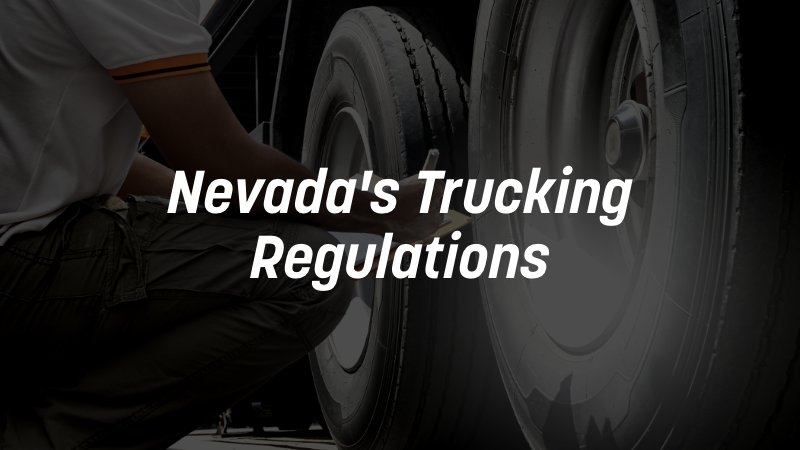The size, weight and engineering of a large commercial truck make it a significant danger to other road users. In an accident, a large and heavy semi-truck or 18-wheeler will exert an extreme amount of force on a smaller car. For this reason, there are many state and federal truck regulations established in Nevada to improve trucking safety.

Truck Driver Qualifications
In Nevada, state trucking laws are regulated by the Department of Motor Vehicles Motor Carrier Division. This division oversees Interstate Motor Carriers and Intrastate Common Goods Carriers, while the Nevada Transportation Authority regulates Intrastate Motor Carriers and Household Goods Movers.
Under state law, a truck driver must hold a valid commercial driver’s license (CDL) to operate a large truck or big rig. An individual in Nevada must be at least 21 years old to apply for a CDL for interstate driving and at least 25 years old to drive a commercial truck that is longer than 70 feet.
Driver Hours-of-Service Regulations
Truck drivers in Nevada must comply with federal truck regulations in addition to statewide laws. The Federal Motor Carrier Safety Administration (FMCSA) is in charge of enforcing federal trucking laws. One of these laws, known as “hours of service,” restricts the amount of time that a truck driver is allowed to be on duty without a rest break.
Under this rule, no property-carrying truck driver can exceed a maximum of 11 hours on-duty after 10 consecutive hours off-duty. After 8 cumulative hours of on-duty driving time with no break, a driver must take a 30-minute break. There is also a 60/70-hour driving limit in 7/8 consecutive days.
Truck Height and Weight Limits
The Nevada Department of Transportation sets rules for truck dimensions. Under these rules, a commercial truck cannot exceed 14 feet in height, 8.5 feet in width and 70 feet in length. In addition, a truck cannot weigh more than 20,000 pounds for single-axle vehicles, 34,000 pounds for tandem-axle vehicles and 42,000 pounds for triple-axle vehicles. Drivers may only exceed these limits with special permits.
Cargo Loading and Securement Rules
The FMCSA has rules regarding how cargo must be loaded onto commercial trucks to ensure the proper balance. An imbalanced load could make a tractor-trailer wobble, tip or rollover. There are also federal cargo securement rules that outline how different types of loads must be secured or tied down to prevent them from falling from commercial vehicles. Finally, there are special rules for the transportation of hazardous materials and goods.
Drunk Driving Laws
Commercial drivers must obey a modified driving under the influence (DUI) law in Nevada. Instead of the typical blood alcohol concentration (BAC) maximum of 0.08 percent, it is half this at 0.04 percent for CDL holders who are operating commercial vehicles.
If a truck driver gets pulled over by law enforcement, he or she must agree to blood alcohol testing. If there is any detectable amount of alcohol, even with a BAC of less than 0.04 percent, the driver will be restricted from driving for 24 hours.
Truck Regulation Violations Cause Accidents
If a truck driver or trucking company in Nevada violates any of these rules and causes a truck accident, they could be held financially responsible for the victim’s injuries and losses. Consult with a Las Vegas truck accident attorney at Koch & Brim, LLP to request a free consultation about a recent truck accident in Las Vegas.